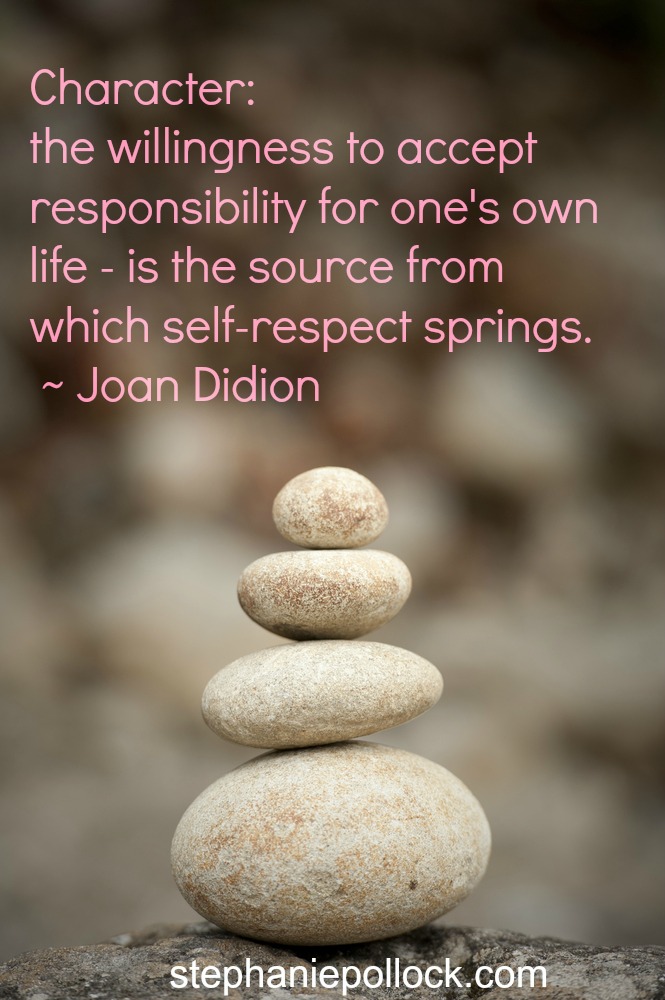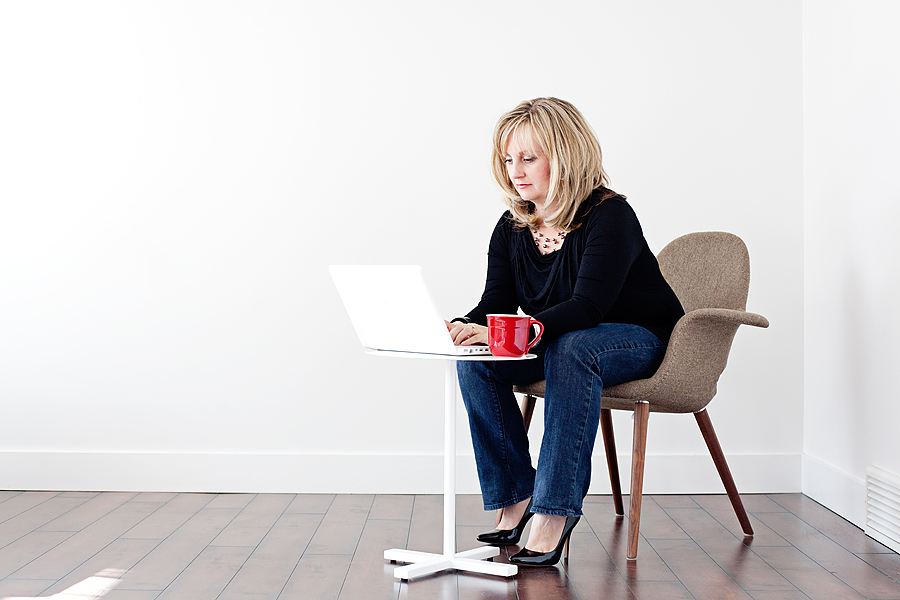I’d like to call forth a movement where every business owner takes full personal responsibility for their results.
No more excuses. No more playing small. No more waiting, wondering, pondering or pontificating.
There’s no denying that taking full responsibility for our lives and our results is H-A-R-D. It’s just so much easier to blame external circumstances or factors, or justify why we haven’t achieved the levels of success we say we desire.
We all do it at times – nobody’s immune. Taking full responsibility is uncomfortable, vulnerable and at times even scary. It leaves us feeling naked – with the potential to be judged and criticized – by others, and by ourselves. It’s much harder to say, “Wow – I really did not think that through properly. Next time, I’ll spend more time understanding all the factors at play,” than it is to say, “Well the economy sucks so nobody’s really buying right now, and I got some crappy advice anyway so it’s no wonder it didn’t work.”
Ask yourself,
“Am I taking full responsibility for the results I’m currently experiencing in my business?”
If the answer is no, don’t beat yourself up – it’s human nature to deflect uncomfortable feelings. But recognize that this deflection is preventing your business from truly thriving. The opportunity for expansion and true prosperity comes from stepping up to the plate and fully acknowledging where you’ve let things fall, dismissed as outside your control or allowed yourself to believe limiting thoughts that simply aren’t true.
Taking full responsibility is the ultimate exercise in bridging the gap between where you are now and where you say you want to go.
Let’s talk about what this would actually look like in practice:
:: The state of your business would be contingent on you – not on the economy, or your competitors, or your past successes or failures, or the latest marketing trend. Taking full responsibility means that at the end of the day – your business results are 100% dependant on you. Yes, really!
:: The copy-cat branding and comparison trap thinking would end. Taking full responsibility means your yardstick isn’t measured against someone else’s – you measure against yourself and your own capacities.
:: You’d actively promote and sell yourself and your business. You wouldn’t avoid doing it, using excuses like, “I don’t want to be pushy or sleazy or slimey or salesy.” Taking full responsibility means that your business’s success lies in your ability to spread your message and let the right people know what you have to offer. Period.
:: You’d stop hiding behind your perceived lack of knowledge or clarity, and you’d just get out there and do it. Clarity comes from doing. Knowledge comes from experiencing. Taking full responsibility means taking action and adapting along the way – even through uncertainty.
:: You’d carefully protect and monitor your mental health. You’d cultivate a mindset that supports your growth rather than hinders it. Taking full responsibility means you’ll do whatever it takes to maintain a healthy, positive mindset – even when fit hits the shan.
:: You’d ditch the excuses that keep you playing small: “I don’t have enough time.” “I’ve got kids /husband / full-time job / part-time job / (insert your choice).” “I don’t know enough yet.” “I don’t know how to market my business.” Taking full responsibility means acknowledging your existing reality, honing in on your most important priorities, and carving out the space and time to make them happen.
:: You’d ask for support and help, but you wouldn’t expect them to make key decisions for you or give you everything you need. Taking full responsibility means you are the CEO of your business, and nobody knows it like you do. The buck stops here.
:: You’d experiment, test, try and tweak – without qualifying it as failure. Taking full responsibility means being willing to push beyond your comfort zone and do something unproven. And if it flops, taking full responsibility means you own, learn from it and move on.
:: You’d create a business model and pricing structure that supported the lifestyle and financial goals you have. You’d simply stop undercharging, under-earning and underselling yourself. Taking full responsibility means looking carefully at your numbers, and having the confidence to charge well for the value you provide. If you can’t afford to live, your business won’t be providing value much longer.
:: You’d stop saying you’re going to start blogging / doing video / create a product or program / doing a joint venture / reaching out to other business owners, and you’d just do it. Taking full responsibility means living with integrity – even to yourself. Doing what you say you’re going to do.
:: You’d give yourself regular breaks and experience life outside the laptop. Our best ideas often come when we’re away from the Apple glow. And it’s important for your well-being. Taking full responsibility means you recognize that life goes on even if you’re away from your email for 30 minutes and that you’ll show up in bigger ways if you’re rested and healthy.
I could go on…
Here’s why taking personal responsibility is just so damn important. It actually builds your confidence, your self-worth, your courage and your leadership skills – all essential qualities of remarkable and successful entrepreneurs.
And the opposite is true. Discounting, dismissing or projecting your results and experiences outside of yourself will leave you feeling less-than, out of control and doubtful that you have the resources and capacity to create the results you want to achieve.
The good news is that as you start to take responsibility – even for the small things – you build your resilience and courage muscles, making it easier to do it again – this time for something a bit bigger. Give it a try.



